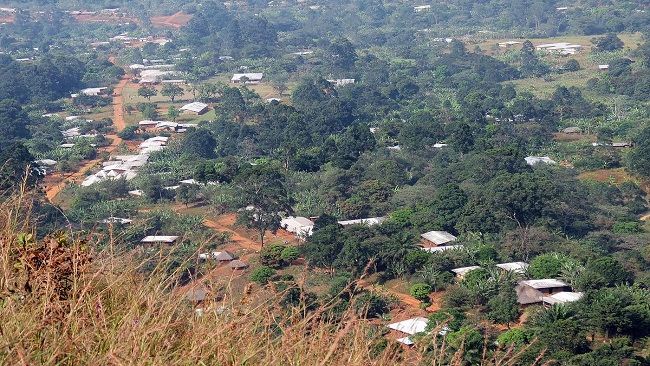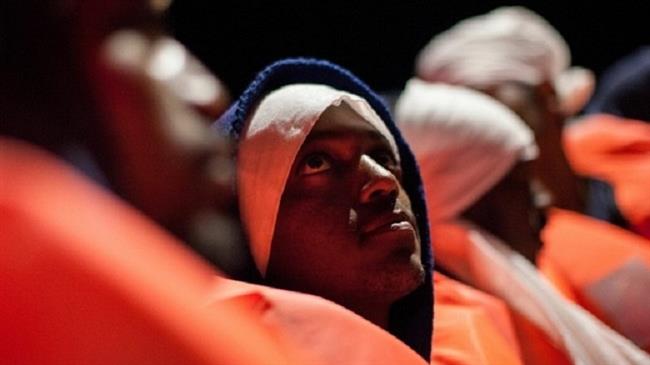24, April 2018
Belo: French Cameroun forces killed, raped and burned civilians alive 0
The French Cameroun army caused mayhem over the weekend in Djichami, a small community in the Belo municipality Boyo Division. For the past three weeks, inhabitants of Belo, Anyajua, Dzikfin, and other small villages have been targeted by the Francophone dominated Cameroon military with scores of houses burnt down. It should be recalled that the Raster man (Sam Sawyer) who was infamously beheaded by the cowardly soldiers from French speaking Cameroun was from Belo.
Cameroon Intelligence Report sources on the ground revealed that the beheading of Sam Sawyer changed the phase of the revolution as the young men in his community enrolled massively in to the resistance army. Many of the Belo young men and women openly told our correspondent that they prefer to die fighting, than to be killed like Sam Sawyer whom they say was never involved in an armed resistance before his demise.
We understand that last week, a gendarme officer in Belo left his colleagues and went out with his gun raping women and young girls. The officer our informant noted was captured by unknown gun men, and shortly after pictures of him with hands tied ,soaked in his blood were circulating on social media. The Francophone administrators in the constituency were quoted as saying that the beheading of the officer prompted the killing Sam Sawyer. A position denied by many Ambazonians contacted by our reporter.
In retaliation to the abduction and killing of the said gendarmerie officer, French Cameroun troops invaded the neighboring communities’ and moved right as far as Njinikom, torturing and killing innocent civilians. The inhabitants of Belo have abandoned their ancestral homeland because of the continuous French Cameroun military incursions taking along with them their livestock. The French Cameroun army has been stealing goats, chicken and other foodstuffs in order to sustain their campaign in the area. With Belo now a ghost settlement, the inhabitants of Djichami reportedly destroyed the only bridge linking Belo and Djichami to prevent the blood thirsty French Cameroun soldiers from penetrating their neighborhoods.
This preventive measure could not protect the people of Djichami as the Francophone soldiers used the back corridor passing through Ndawara over the weekend and on Sunday morning killed 12 people. Homes were set on fire and an old man and his son were burnt alive. At the time of filing this report, we gathered that some armed men attacked the Gendarmerie Brigade down town Belo, but we are yet to confirm the casualties on the side of the French Cameroun army.
By Ntam Charles Ngeh in Bonn, Germany with files from Sama Ernest


































24, April 2018
121 Cameroonian Returnees Arrive Home Safely with IOM Assistance 0
Last week (19 April) 121 Cameroonian migrants returned home from Libya after being assisted by IOM, the UN Migration Agency. The returnees were welcomed at Nsimalen international airport in the capital Yaoundé, by representatives from the European Union Delegation, Cameroon’s Ministry of External Relations and Boubacar Seybou, IOM Chief of Mission in Cameroon.
Upon arrival, the returnees received medical check-ups including psychological support from the Ministries of Health and Social Affairs. IOM provided food assistance and distributed a delivery kit to pregnant women, which included clothes, basins, towels and other useful material.
“I have lived the worst nightmare in Libya, moving for nine months from prison to prison. And now that I’m back, I ask myself what pushed me outside Cameroon,” one of returnees told IOM staff at the airport.
This latest charter was organized within the framework of the EU-IOM Joint initiative for migrant protection and reintegration in Cameroon, financed by the European Union and implemented by IOM. This project aims at strengthening the mechanisms for migrant protection and assistance all along the migration route.
So far 1,357 Cameroonians (1,105 men, 252 women) have returned home under the initiative.
In addition to facilitating the voluntary return to the country of origin of Cameroonian migrants, the EU-IOM joint initiative also focuses on supporting returnees’ reintegration in the country and on raising-awareness on the risks of irregular migration. The programme’s operations in Cameroon started in June 2017.
With the cooperation of the Ministry of Youth Affairs and Civic Education, 184 returnees have been supported by IOM to start their livelihood activities. In addition, the business plans of more than 700 migrants have been approved as of the end of March, and the migrants will soon receive the material they need to start activities in fields such as agriculture, livestock breeding and retail, among others.
Source: International Organization for Migration